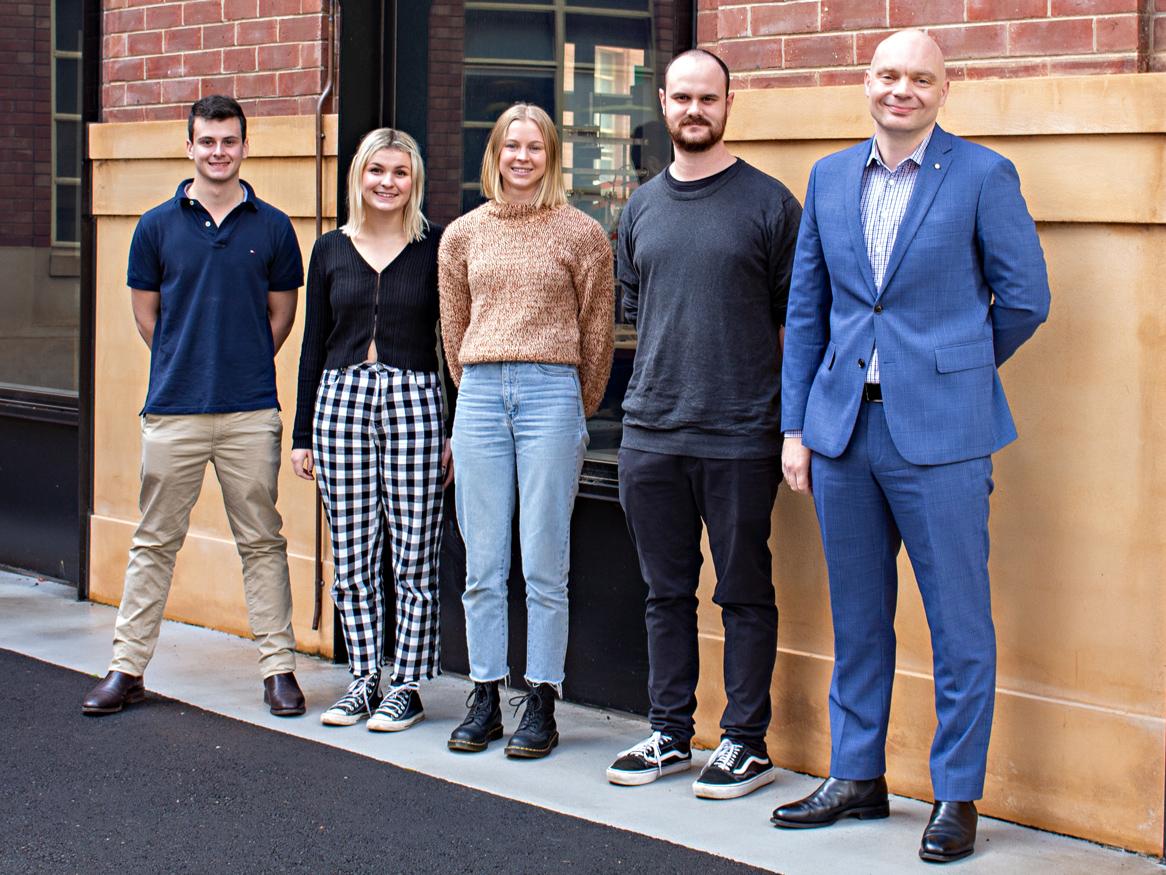Bringing self-sufficient power systems to the Solomon Islands
Researchers and students from the School of Mechanical Engineering will be establishing life-changing hydropower systems and training to Malaita on the Solomon Islands.

Malaita, Solomon Island
Image: Leocadio Sebastian|Flickr
Lead researcher Dr Cris Birzer, along with research student Matt Toole and undergraduate Mechanical and Mechatronic engineering students Molly Schortz, Ania Wlosinski, Holly Beecham, Oliver Sprey and Lauren Squires, are aiding Australia's support in developing sustainable and renewable energy for the Solomon Islands, and helping to address climate change by developing hydropower facilities through training the local community members.
The team have received AU$90k from the Department of Foreign Affairs and Trade (DFAT)'s International Climate Change Engagement Program which was established to assist developing countries in the Indo-Pacific to meet their Paris Agreement commitments. The Paris Agreement is a legally binding international treaty on climate change, with the goal to limit global warming to well below 2 – preferably to 1.5 degrees Celsius – to achieve a climate neutral world by mid-century.
However, many countries cannot achieve this goal alone. Researchers such as Dr Birzer and his student team are contributing significant life-changing humanitarian efforts, technology and training where it is needed most.
For much of the world, electricity is needed to keep lights on at night, make sure fridges and freezers work, charge mobile phones and computers, and so much more. All these things are commonplace for many of us in Australia, but in the Solomon Islands, one of our nearest neighbours, that is not the case. The island of Malaita has over 160 thousand people, but only 2-3% electricity penetration.
That means most of the people do not have lights at night to provide safety; they do not have fridges or freezers to store food or medicine – including vaccines; they do not have readily available internet access or telecommunications systems.
By working in collaboration with the local community, Dr Birzer and his team will give them the tools and training they need to design, install and operate their own systems, with funding also covering the installation of a number of systems. The training will empower the community to be self-sufficient in maintenance, installation and operation, so they can continue to increase the energy penetration in the island using renewable, clean energy.
The project will result in people in Solomon Islands, and specifically Malaita being able to safely and appropriately design, install, operate, and maintain community-scale hydropower systems, thus improving the quality of life and safety of the local community, and preventing a growing reliance on fossil-fuel combustion for electricity. The program will:
- Implement a pumped hydropower training system
- Deliver a train-the-trainer course designed for participants to deliver a hydropower course
- Deliver an education program to local Solomon Island communities that will enable them to design, install, commission, operate, and maintain hydropower systems.
While this technology has been available for some time, Dr Birzer and team have adapted it and made it available for those who need it most – providing training and technology that does not require ongoing external costly maintenance.
The Solomon Islands are just one of Australia’s many neighbours that have limited electricity penetration – if this pilot project is a success then we look forward to seeing this technology and training rolled out throughout the Pacific islands.
About the researchers

L-R: Oliver, Holly, Lauren, Matthew and Cris.
Also part of the team are Molly and Ania, not pictured.
Dr Cris Birzer is a Senior Lecturer with the School of Mechanical Engineering in Sustainable Energy and Humanitarian Engineering. He is the Associate Editor for the Journal of Humanitarian Engineering. Dr Cris Birzer’s research focuses on the development of humanitarian technologies for resource-constrained countries and regions. His motivation is to make complex engineering available and affordable to those who need it most, in order to help raise their quality of life, increase life expectancy, and reduce preventable deaths.
Matthew Toole is currently completing his PhD into improving the efficiency of undershot water-wheel, a continuation of his Honours research at the University of Adelaide. He is motivated to aid in the Sustainable Development Goal of making clean energy available to all, and is currently investigating whether the use of perforations can improve the efficiency and reduce downstream flow effects of undershot water-wheels in open channel flow. Eventually, Matt is hopeful that undershot water-wheels will be deployed as an easy to set-up and maintain power supply for rural, non-electrified areas, such as the Solomon Islands.
Molly Schortz, Ania Wlosinski, Holly Beecham, Oliver Sprey and Lauren Squires are all undergraduate students studying a Bachelor of Engineering (Honours) at the University of Adelaide, specialising in Mechanical and Mechatronic engineering.
